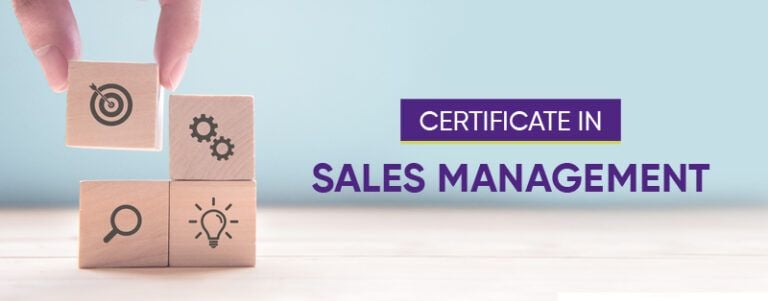9 Critical Elements to Ace Your Interview

Having conducted over 750 interviews across some small and large organizations, including fortune 500 companies, I have curated a list of 9 critical elements (expanding on the term INTERVIEW) that would help you prepare more effectively for your upcoming interviews. Let us understand these elements one by one.
I (Insightful) – The stakes of both the interviewer and interviewee are high as part of the interview process. On the one hand, an interviewer is looking out for the right candidate for their company, and on the other hand, interviewers are looking to get placed with a good company and profile. No brainer, the stakes for the interviewee are higher than the interviewer. It is thus important that the interviewee keeps the interview not only conversational but also, more importantly, insightful. The interviewee should ensure that they
- Understands the question well before answering
- Uses examples from their professional and personal life as a means to substantiate their point of view
- Relates elements from the conversation to the requirements of the role.
N (Need for a change) – As soon as you get a confirmation for an upcoming interview, the first and foremost element that you should prepare (based on our recommendation) is to be able to answer the question that all interviewers would generally ask “Why are you looking for a change.” The reason(s) has to be strong and genuine. Use this as an opportunity to depict to the interviewer your clarity of thought and your intent for a long-term association with the company. This is that one question that cannot have a textbook or formula-driven answer. It has to be aligned with the personal vision of every interviewee. Some elements that this answer could include / should not include are –
Good reasons to share –
- A more challenging work profile (transition from tactical to the strategic role), given your overall experience
- A new work profile, given the new skills that you have recently acquired
- Change in location
Not so good reasons to share –
- Increase in compensation
- Not so good working culture with your previous organization
- Monotonous work profile
- Not so cordial relation with your last manager
T (Technical) – Interviewers are always keen to ask questions that would allow them to understand the depth of your technical knowledge. Mathematically the proportion of technical questions in your upcoming interview would depend on your experience level. Freshers and professionals with a few years of working experience are likely to be asked more technical queries (up to 2/3rd of the interview questions that the interviewer would ask) than those with more experience (1/3rd of the interview questions). The profile you have applied for would be another consideration in determining how technical your interview will likely be.
E (Empower) – As an interviewee, if you have applied for a role that has an element of team management, then it is important to proactively have examples ready to depict ways in which you generally empower your team for them to excel professionally (achieving / over-achieving targets) and personally (skill development). This is also an area that the interviewers use to probe more about your natural style of leadership, adaptability, and being a team player. As an interviewee, this is that time of the interview when the interviewer is trying to understand your fitment to the team and company.
R (Responsible) – With my experience of having been an interviewer (750+ interviews over a career spanning 18+ Years) and interacting with interviewers from different organizations, I have realized a very important aspect that the majority of interviewers are implicitly looking out for which is “your ability and intent to take responsibilities and do justice to them.” It may be good if you are a candidate who generally takes responsibility when asked to do so by your seniors. However, you may be the best fit if you can showcase that undertaking responsibility comes naturally to you and without being asked for. Once you join an organization, your seniors may not have the time to tell you everything, but if you are a person who can showcase either or all of the undermentioned, then there is no one better than you for the team/role.
- Took additional responsibilities without being asked for
- Lead from the front
- Volunteered to help colleagues
V (Values) – Every organization has a set of values they believe in. If the prospective employee can relate to the same, it lays a good foundation for the employer-employee relationship to grow. Thus, interviewees should visit the company website, understand their values and identify the values they resonate with the most. Next, for every value they resonate with, they should identify examples as part of their preparation for a probable question through which the interviewer would like to understand the fitment of the interviewee to the organization.
I (Ideation / Innovation) – A much sought-after skill by interviewers and corporates searching for prospective employees. During the interview, if you can demonstrate either your ability to ideate (think new ideas, new & smarter ways of doing things) or innovate (use technology to improve the efficiency and effectiveness of processes), then not only do you score extra points with the interviewer but also the chances of you getting selected improve manifold. Most organizations are focused on creativity/innovation, so while preparing for the interview, think of / construct examples to showcase this element. While answering questions relating to processes in their current work profiles, a smart interviewee would go the extra mile to bring to the notice of the interviewer situations in which they presented new ideas within their organization and then collaborated with the relevant teams to implement the same. If you have such examples, make sure they stand out on your resume (along with the impact generated in terms of targets achieved / over achieved, improvement in customer satisfaction, quality scores, etc.)
E (Enthusiasm) – Interviewers love interviewees who demonstrate enthusiasm during the interview process. This is best done by:
- Showcasing positive body language throughout the interview – sitting straight, maintaining eye contact with the interviewer, etc.
- Building rapport with the interviewer.
- Attentive listening and active correlation with the job description requirements (technical, behavioral).
- Active listening
- Asking relevant questions
W (Worthiness) – The difference between a regular interviewee and a smart interviewee (higher chances of cracking the interview) is their ability to (throughout the discussion) identify areas to reiterate their fitment to the role, team continuously, and company. Let us say that you asked the interviewer about the challenges you could expect as part of the role. Based on the response provided by the interviewer, you could make closing remarks such as – “I am glad you shared some of these challenges that I should be prepared for. I did face some of the challenges you mentioned in my previous role(s) as well, and the experience I gained would make things relatively easier and quicker for me if I get selected for the role”. These closing remarks coming from you right at the end of the interview would be perfect timing for the interviewer to carry these thoughts back to make the final decision.
The applicability of the above elements would depend on the role applied for and the overall experience of the professional. All the above may be common points but are often ignored by interviewees as part of their interview process. Using these points to prepare for your upcoming interviews would make you more comfortable and confident about meeting the next interviewer and increase your chances of clearing the interview.
~ Akhil Iyer | Author, Coach and Speaker | Propelurs Consulting | Ex Assistant Director EY GDS





